Sabaat Drama Review –When it comes to Pakistani television dramas, certain projects leave a lasting impression not only because of their engaging storylines but also due to the depth of emotions, relatable characters, and powerful performances. One such project is Sabaat, which quickly captured the attention of audiences both locally and internationally. In this Sabaat Drama Review, we will dive into the reasons why this drama became a household favorite, exploring its unique storytelling, the societal issues it highlighted, and the lasting impact it has left on the industry.
The purpose of this Sabaat Drama Review is not only to evaluate the storyline but also to reflect on the larger themes the drama encapsulates. Pakistani dramas often serve as mirrors to society, shedding light on family values, cultural norms, and the consequences of human decisions. Sabaat is no different; in fact, it excels at portraying the delicate balance between ambition, greed, love, betrayal, and justice. It is a drama that makes the viewer question the choices people make and the price they end up paying.
From the very first episode, the drama set a high standard for storytelling. Unlike conventional love stories, Sabaat Drama Review highlights the importance of character depth, flawed personalities, and evolving relationships. It successfully breaks away from predictable tropes by introducing multi-layered conflicts that keep the audience invested. The series focuses on how different individuals, driven by desires and insecurities, navigate life’s challenges and, in the process, learn life-changing lessons.
Another reason why this Sabaat Drama Review stands out is the perfect blend of traditional and modern issues presented within the plot. The drama portrays the struggles of the younger generation who want independence but often clash with conservative mindsets. It also delves into themes like sibling rivalry, women’s empowerment, and the consequences of unchecked pride. By integrating these themes naturally into the story, the drama speaks to a wide audience, from young viewers to more mature ones.

Table of Contents
ToggleThe cultural and emotional relevance of Sabaat makes it an excellent case study in modern Pakistani television. This Sabaat Drama Review recognizes how skillfully the creators crafted a narrative that resonates with anyone who has experienced ambition, jealousy, or love in their own lives. Viewers could see themselves reflected in the characters’ journeys, which made the drama relatable and thought-provoking.
Furthermore, the drama’s popularity was not just limited to its narrative. Direction, cinematography, and powerful performances also played a vital role in its success. In any Sabaat Drama Review, it is impossible to ignore the stellar cast, who breathed life into their roles with authenticity. The emotional depth and natural dialogue delivery by the actors ensured that the audience remained engaged throughout the episodes. The drama’s OST also deserves a special mention, as it added emotional weight to critical moments, enhancing the viewing experience.
This Sabaat Drama Review also acknowledges the drama’s pacing and plot twists, which kept viewers anticipating every new episode. Unlike many serials that drag their storylines, Sabaat maintained a steady rhythm and presented unpredictable turns that added excitement without losing its emotional intensity. The carefully crafted screenplay ensured that every character arc reached a satisfying conclusion, making the drama impactful till the very last episode.
At its core, Sabaat is not just entertainment—it is a story about human flaws, resilience, and the harsh lessons life teaches. A strong Sabaat Drama Review must highlight how it tackled universal themes like loyalty, betrayal, and justice, which remain relevant across time and culture. The drama made viewers reflect on their own choices and relationships, sparking conversations beyond television screens.
In conclusion, the introduction to this Sabaat Drama Review shows that Sabaat is much more than an ordinary drama. It is a story that speaks to the heart, challenges the mind, and leaves the audience with valuable lessons. Whether you are a fan of Pakistani dramas or someone exploring them for the first time, Sabaat is an experience worth having, and this review will guide you through its most remarkable aspects.
Background Information
Every drama has a unique origin, and to understand its impact, one must first explore its background. In this Sabaat Drama Review, it is essential to shed light on how the project came into existence, the creative minds behind it, and the cultural environment in which it was produced. Pakistani dramas have always been a reflection of society, and Sabaat was created during a time when audiences were demanding more realistic, emotionally charged, and socially relevant narratives.
Sabaat aired on Hum TV in 2020, a channel well-known for producing dramas that balance entertainment with social commentary. Written by Kashif Anwar and directed by Shehzad Kashmiri, the drama was not just another addition to the long list of Pakistani serials. Instead, it was carefully designed to portray modern-day struggles while also weaving in timeless moral lessons. This Sabaat Drama Review recognizes that the drama stood out because it dared to tackle sensitive issues without losing its emotional essence.
The timing of its release also played a significant role in its success. During the period when Sabaat aired, viewers were tired of repetitive storylines revolving around love triangles, typical domestic conflicts, and unnecessary dragging of plots. The drama industry was in need of fresh storytelling, and Sabaat Drama Review reflects how this project brought a refreshing change by introducing layered characters and complex relationships that mirrored real life.
The drama’s background is deeply tied to its cast. Featuring talented actors like Mawra Hocane, Ameer Gilani, Sarah Khan, and Usman Mukhtar, the show benefited from strong performances that elevated the script. Each actor brought their own charm and depth, ensuring that the audience remained emotionally invested. From an industry perspective, this Sabaat Drama Review highlights how the drama also served as a breakthrough for younger actors like Ameer Gilani, who became a recognized name due to his remarkable portrayal.
Another factor in Sabaat’s background was its production quality. The drama was filmed in Islamabad and other picturesque locations, which gave it a unique visual appeal. Unlike dramas confined to indoor household settings, Sabaat’s backdrop created a sense of freshness and realism. This Sabaat Drama Review acknowledges the efforts of the production team in ensuring that every frame looked authentic and visually pleasing.
It is also important to understand the thematic background of the drama. The story was not just about love or family conflicts; it was about ambition, class differences, psychological struggles, and the consequences of unchecked pride. This made Sabaat highly relatable, as audiences could see real-life reflections of these themes in their surroundings. A well-rounded Sabaat Drama Review must point out how the drama managed to bridge the gap between fiction and reality, making it a mirror of society.
The cultural environment during its release further enhanced the drama’s impact. Pakistani audiences were increasingly vocal about women’s empowerment, toxic relationships, and mental health issues. Sabaat tapped into these discussions and presented them on screen in a way that was both digestible and thought-provoking. This Sabaat Drama Review emphasizes that the timing of its broadcast aligned perfectly with the conversations happening in society, which contributed to its popularity.
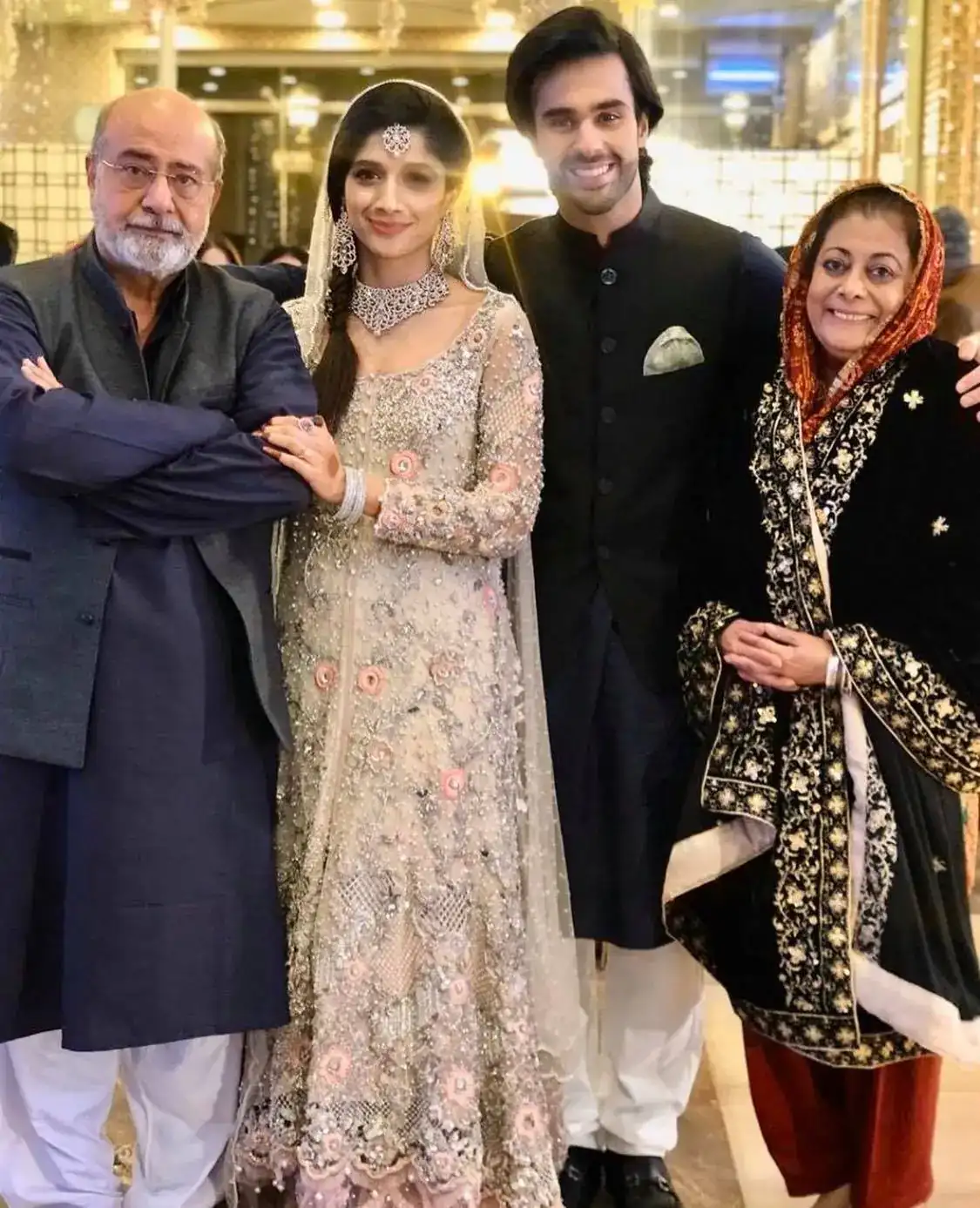
From a technical standpoint, Shehzad Kashmiri’s direction deserves recognition. Known for his work on projects like Yakeen Ka Safar, he once again showcased his ability to combine emotion with aesthetics. His visual storytelling, combined with Kashif Anwar’s powerful script, made Sabaat a well-rounded drama. This Sabaat Drama Review credits the director for bringing out raw emotions from the actors while also maintaining a cinematic quality that elevated the entire project.
Additionally, the background of the drama includes its music. The official soundtrack, sung by Ali Sethi, became instantly popular due to its soulful melody and emotional lyrics. In the world of Pakistani dramas, an OST often becomes an identity for the show, and in this case, the OST added an extra layer of emotional connection. This Sabaat Drama Review cannot ignore how the music played a vital role in leaving a long-lasting impression on viewers.
In summary, the background of Sabaat reveals why it became a standout project in Pakistani television history. Its release timing, strong cast, talented production team, relevant themes, and emotional depth all contributed to its success. This Sabaat Drama Review shows that the drama was not just a piece of entertainment but a carefully crafted project that addressed real societal issues while still keeping the audience engaged. By exploring its roots, one can better understand why Sabaat continues to be remembered and discussed long after its conclusion.
Plot Summary
The essence of any drama lies in its story, and in this Sabaat Drama Review, the plot deserves special attention because it was both relatable and emotionally gripping. Unlike many typical serials that revolve around predictable love stories, Sabaat carved a niche for itself by presenting a layered narrative about ambition, betrayal, love, family conflict, and redemption. The drama showcased how human flaws can either destroy relationships or become a stepping stone for growth.
At the heart of this Sabaat Drama Review lies the journey of four key characters—Hassan, Anaya, Miraal, and Dr. Haris. Their lives intersect in ways that highlight the consequences of choices, pride, and unchecked desires. The drama begins by introducing Miraal (played by Sarah Khan), the daughter of a wealthy and influential businessman. Miraal is depicted as a strong yet deeply flawed character whose arrogance and superiority complex shape much of the conflict in the story. Her belief that money and power can control everything becomes the foundation for her downfall.
In contrast, we are introduced to Hassan (Ameer Gilani), a young man from a middle-class family, who aspires to rise above his circumstances through education and hard work. His character represents the struggles of many young individuals in Pakistan who dream of making a name for themselves despite societal pressures. Hassan’s humble background and determination make him an instant favorite in this Sabaat Drama Review.
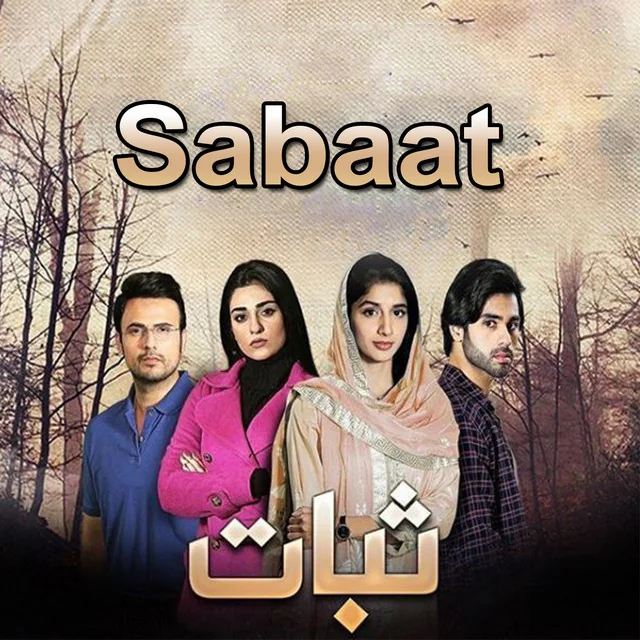
Anaya (Mawra Hocane) is the female protagonist whose character adds balance to the drama. Coming from a supportive and progressive family, Anaya symbolizes resilience, empathy, and women’s empowerment. Her entry into Hassan’s life brings positivity and stability, but it also creates conflicts with Miraal, who sees Anaya as a threat to her control over Hassan. Their love story is not just a romantic subplot; it becomes the central pillar of the drama’s message about loyalty, integrity, and the power of standing up for one’s beliefs.
Dr. Haris (Usman Mukhtar) enters the story as Miraal’s psychiatrist and later becomes her husband. His calm, composed, and rational personality stands in stark contrast to Miraal’s fiery and manipulative behavior. This Sabaat Drama Review highlights how Dr. Haris is not only a character but also a symbol of sanity, patience, and rational thinking, reflecting the importance of mental health and emotional balance in relationships.
As the story unfolds, the drama takes viewers on an emotional rollercoaster. Hassan and Anaya’s relationship faces numerous hurdles due to Miraal’s interference. Miraal, driven by jealousy and arrogance, uses her wealth and influence to create problems for the couple. This Sabaat Drama Review underlines how Miraal’s inability to accept Hassan’s independence reflects the struggles between ego and humility that are prevalent in society.
Meanwhile, Anaya faces her own set of challenges, including workplace harassment, which the drama portrays with sensitivity. Her strength in confronting these issues makes her one of the most inspiring characters in Pakistani television. Through her journey, this Sabaat Drama Review shows how the drama shed light on women’s rights, workplace struggles, and the importance of supportive family dynamics.
The turning point of the drama comes when Hassan, under immense pressure from Miraal and his own insecurities, makes decisions that strain his relationship with Anaya. Their marriage faces difficulties, and viewers are left questioning whether love can survive betrayal and mistrust. At the same time, Miraal’s life spirals out of control as her toxic behavior pushes away even those who care for her. Her relationship with Dr. Haris becomes strained, highlighting the destructive power of unchecked pride.
In the later episodes, the drama takes on a redemptive arc. Hassan realizes his mistakes and works to rebuild his bond with Anaya, while Miraal is forced to confront the consequences of her actions. This Sabaat Drama Review points out that the resolution of the story is not just about tying up loose ends but about delivering a moral lesson: pride and greed ultimately lead to downfall, while humility and love lead to growth.
The final episodes bring closure to each character’s journey in a way that feels authentic rather than forced. Hassan and Anaya find a way back to each other, symbolizing hope and resilience, while Miraal learns that her arrogance has cost her happiness. Dr. Haris, though disappointed, continues to embody patience and wisdom.
In summary, the plot of Sabaat is a carefully crafted blend of romance, family drama, social commentary, and moral lessons. This Sabaat Drama Review emphasizes that the storyline succeeded because it avoided clichés, presented realistic conflicts, and delivered a meaningful conclusion. It is a drama that not only entertained but also made audiences reflect on their own lives, choices, and values.
Character Analysis
A drama’s strength lies in its characters, and in this Sabaat Drama Review, analyzing the characters is essential to understand the depth of its storytelling. Unlike many serials that rely on one-dimensional roles, Sabaat offers a variety of complex personalities, each representing different aspects of human behavior. The characters in this drama are not just plot devices; they are mirrors of society, carrying flaws, strengths, and relatable struggles.
Hassan (Ameer Gilani)
In this Sabaat Drama Review, Hassan stands out as a character who represents ambition, determination, and resilience. Coming from a middle-class background, Hassan embodies the struggles of young men who dream of success in a society where wealth and class often define opportunities. His journey from a humble student to a self-made man resonates deeply with viewers. Hassan is hardworking and genuine, but his insecurities often get the better of him, particularly when dealing with Miraal’s manipulative behavior. This vulnerability makes him relatable because, in real life, ambition is often challenged by self-doubt and external pressures.
Hassan’s relationship with Anaya becomes the core of the story. His love for her is sincere, yet his inability to balance his personal insecurities with Miraal’s interference causes cracks in their marriage. Through Hassan’s character, this Sabaat Drama Review highlights the importance of trust, humility, and emotional growth in building strong relationships.
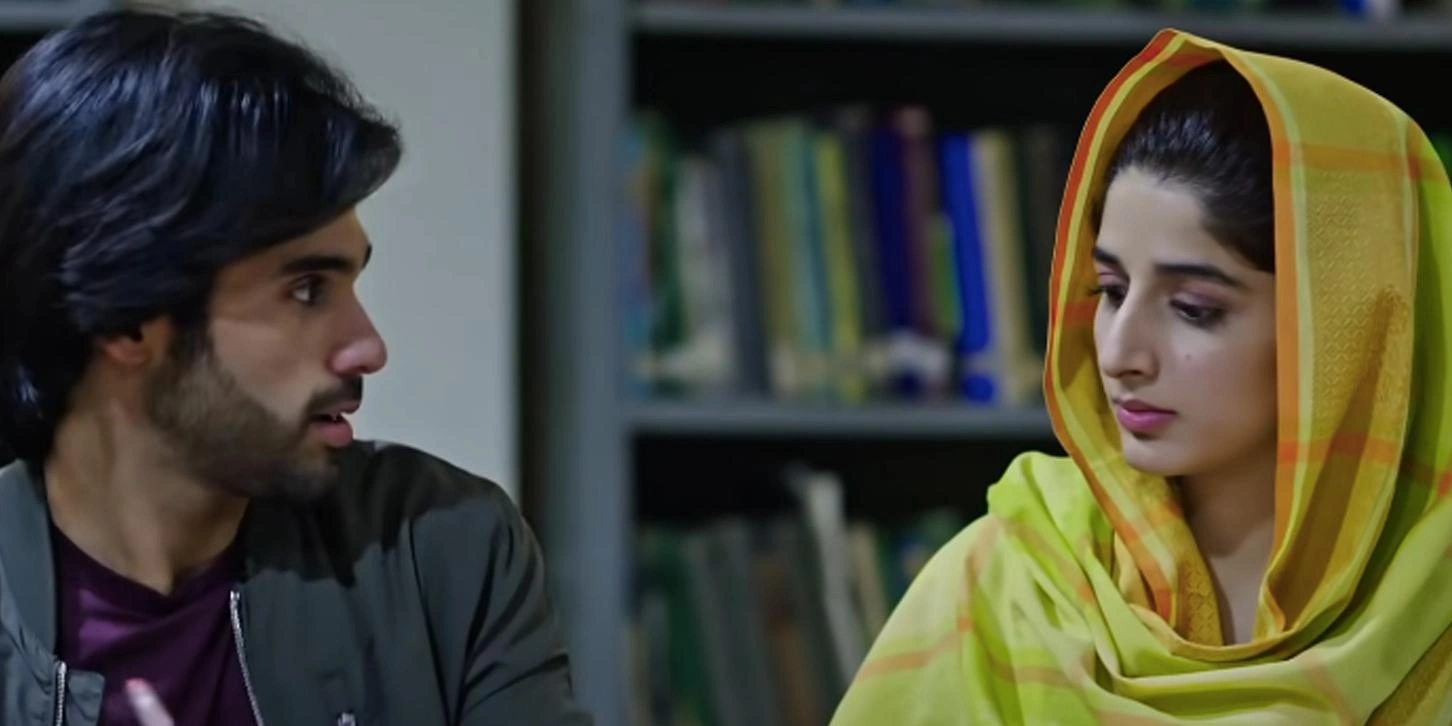
Anaya (Mawra Hocane)
Anaya is one of the most admired characters in Sabaat, and in this Sabaat Drama Review, her analysis proves how she embodies modern Pakistani women. She comes from a supportive family and is portrayed as independent, compassionate, and fearless. Anaya is not afraid to voice her opinions or stand up against injustice, whether at home or in the workplace. Her character challenges stereotypes about women being submissive or secondary in relationships.
One of the most powerful aspects of Anaya’s journey is how she deals with workplace harassment. Instead of being silenced by fear, she chooses to fight back, setting an example for countless women in society. Her resilience and moral courage make her the emotional anchor of the story. This Sabaat Drama Review appreciates how Anaya is not just a love interest but also a symbol of women’s empowerment and integrity.
Miraal (Sarah Khan)
No Sabaat Drama Review would be complete without a detailed analysis of Miraal, the most complex character in the drama. Miraal is intelligent, ambitious, and fiercely independent, but her arrogance, superiority complex, and obsession with control turn her into an antagonist. Raised in a wealthy household, she is accustomed to having things her way, and this sense of entitlement becomes the root of her downfall.
Miraal’s journey is fascinating because it highlights how unchecked pride and greed can destroy even the strongest individuals. Her manipulative tactics against Hassan and Anaya reflect the darker side of human nature—envy and insecurity disguised as power. However, her relationship with Dr. Haris reveals another dimension of her character. Despite her flaws, Miraal is also vulnerable and, at times, trapped by her own insecurities. This Sabaat Drama Review underlines that Miraal’s character is a reminder that arrogance and control cannot guarantee happiness.
Dr. Haris (Usman Mukhtar)
In this Sabaat Drama Review, Dr. Haris emerges as the voice of reason and balance. A psychiatrist by profession, he represents wisdom, patience, and rationality. His calm demeanor stands in stark contrast to Miraal’s fiery nature, creating an interesting dynamic between the two. Haris genuinely loves Miraal and attempts to help her overcome her insecurities, but her refusal to change ultimately weakens their relationship.
Dr. Haris’s character also symbolizes the importance of mental health, a topic often neglected in Pakistani dramas. His role in the story extends beyond being Miraal’s husband; he is also a reflection of how patience and compassion are necessary in handling difficult relationships. This Sabaat Drama Review values Haris’s character as a guiding force, reminding viewers of the importance of stability and kindness in a chaotic world.
Supporting Characters
Beyond the four main leads, Sabaat features strong supporting characters who add depth to the story. Anaya’s parents are portrayed as progressive and supportive, standing by their daughter through thick and thin. Their relationship with Anaya is a refreshing departure from the stereotypical controlling parents often seen in dramas. On the other hand, Miraal’s family dynamic, particularly her father’s authoritative role, highlights how power and wealth can fuel arrogance. This Sabaat Drama Review acknowledges the supporting cast for enhancing the realism of the narrative.
Final Thoughts on Characters
The character analysis in this Sabaat Drama Review shows that the drama’s success lies in its multi-dimensional portrayal of human emotions. Hassan’s ambition, Anaya’s strength, Miraal’s arrogance, and Haris’s patience collectively create a story that feels authentic and relatable. Each character represents a larger theme—ambition, resilience, pride, and wisdom—making Sabaat not just a drama but a lesson in human behavior.
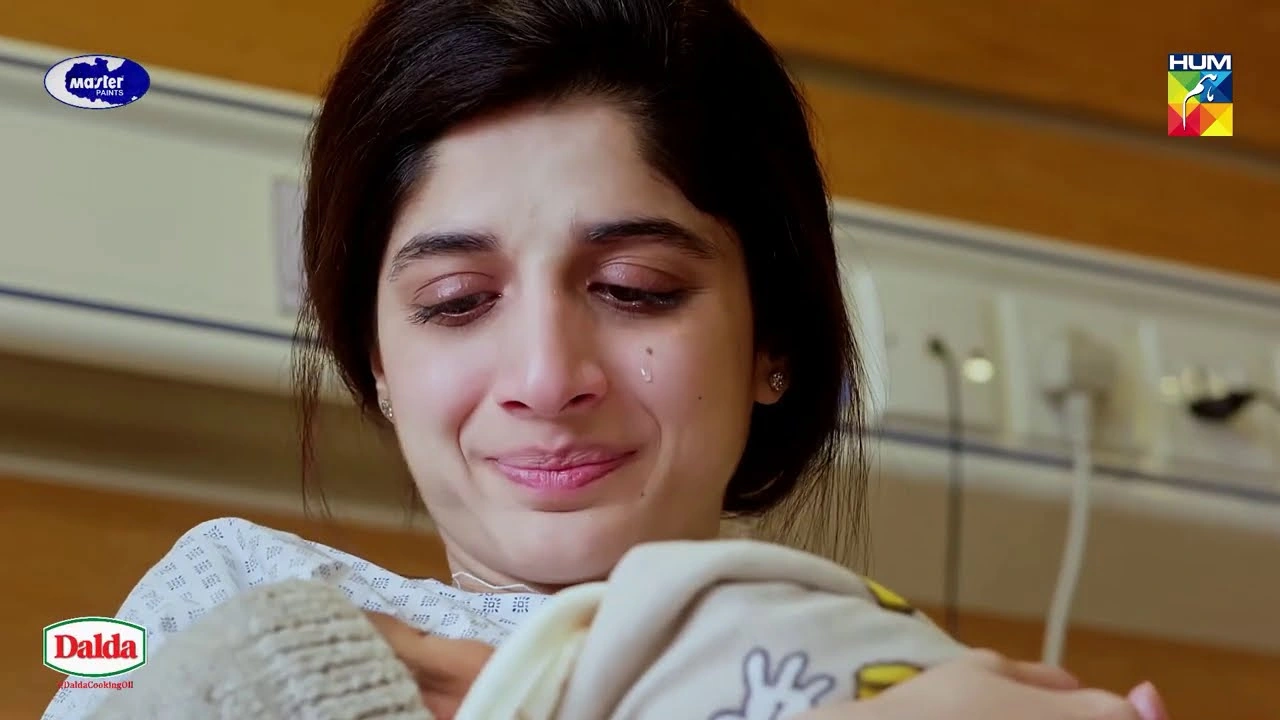
Sabaat Drama Info & OST Credits
When writing a complete Sabaat Drama Review, it is important to highlight the technical and production details of the drama, along with its music credits. Audiences often connect with dramas not only because of the story but also because of the way they are presented, the direction style, the soundtrack, and the overall production quality. Sabaat stands out because it successfully blended these elements, creating a memorable viewing experience.
Below is a detailed look at the drama’s key information and OST credits in table format for easy reference.
Sabaat Drama Information
| Category | Details |
|---|---|
| Drama Name | Sabaat |
| Channel | Hum TV |
| Release Year | 2020 |
| Writer | Kashif Anwar |
| Director | Shehzad Kashmiri |
| Producer | Momina Duraid (MD Productions) |
| Number of Episodes | 30 |
| Genre | Drama, Romance, Social |
| Location | Islamabad, Pakistan |
| Original Language | Urdu |
| Production Company | MD Productions (Momina Duraid) |
Sabaat OST Credits
| Category | Details |
|---|---|
| Title Song (OST) | “Sabaat” |
| Singer | Ali Sethi |
| Composer | Naveed Nashad |
| Lyricist | Kashif Anwar |
| Music Label | HUM TV Official |
The OST deserves a special mention in this Sabaat Drama Review because it became one of the most popular soundtracks of 2020. Sung by the soulful Ali Sethi, the song captured the emotions of the drama perfectly. The melody, lyrics, and composition blended seamlessly to enhance the storytelling. From the very first episode, the OST resonated with viewers, serving as more than just background music. It was an emotional extension of the drama itself.
Ali Sethi’s powerful voice added depth to the feelings of love, betrayal, and longing that the characters experienced. Many fans admitted that they listened to the OST repeatedly outside of the drama, proving how impactful it was. The lyrics, penned by Kashif Anwar, beautifully mirrored the storyline, emphasizing themes of ambition, heartbreak, and redemption. This Sabaat Drama Review must credit the OST for amplifying the emotional intensity of key moments, such as the conflicts between Anaya and Hassan, or the loneliness Miraal faced despite her wealth and pride.
The drama’s overall production quality also played a role in making it stand out. Directed by Shehzad Kashmiri, Sabaat featured clean cinematography, modern locations, and high-quality visuals. Unlike many dramas that recycle sets or rely heavily on domestic indoor shots, Sabaat gave viewers a fresh perspective with its Islamabad-based outdoor scenes. This choice added a modern and realistic vibe, which complemented the drama’s storyline.
From a technical standpoint, Shehzad Kashmiri’s direction is worth analyzing in this Sabaat Drama Review. Known for his expertise in visual storytelling, he used camera work, lighting, and symbolism effectively. For instance, Miraal’s scenes often featured grand settings to reflect her arrogance and power, while Anaya’s home and environment were portrayed in a warm and comforting manner, symbolizing simplicity and family values. These subtle touches helped the audience connect with the emotions and themes on a deeper level.
Furthermore, the drama’s editing and pacing contributed to its success. Each episode carried weight and progression, avoiding unnecessary dragging or filler scenes. This aspect made Sabaat stand out in an industry where many dramas lose momentum midway. The OST played a role here too, as it was often inserted at just the right emotional moment, leaving viewers both teary-eyed and reflective.
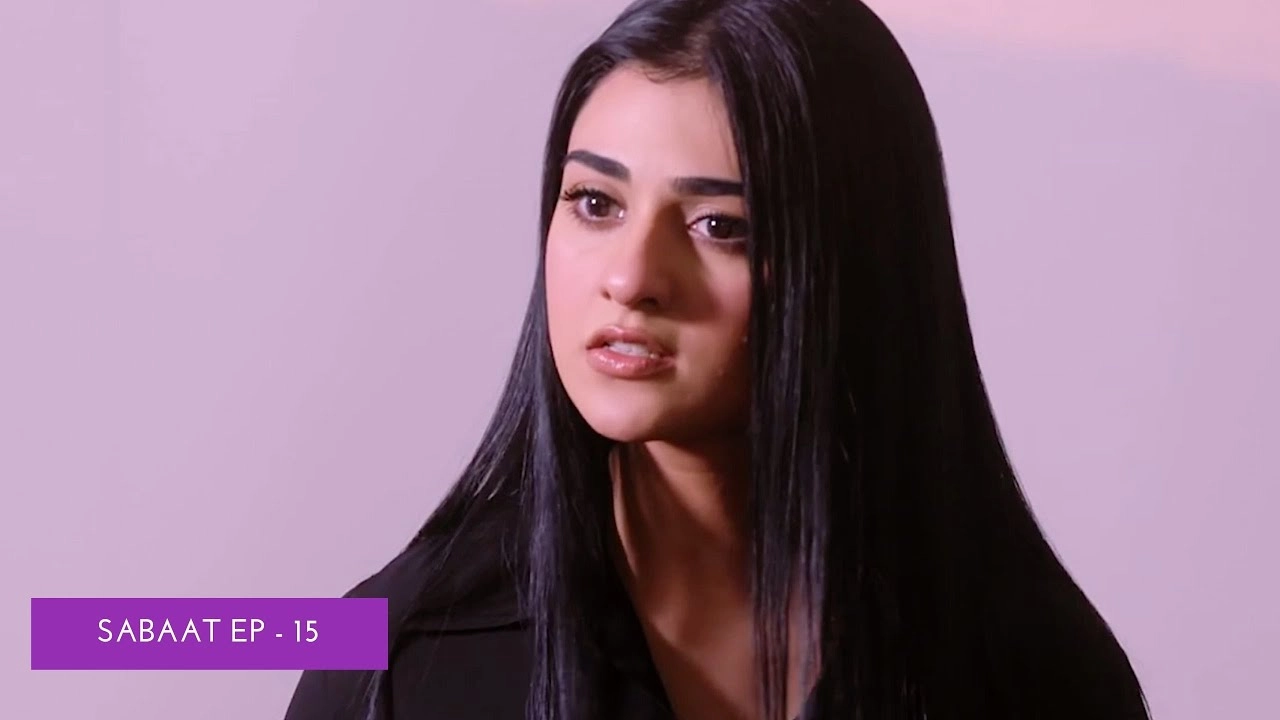
In addition to music and direction, the production company MD Productions also deserves recognition in this Sabaat Drama Review. Under Momina Duraid’s supervision, the drama maintained high standards of quality. From casting choices to wardrobe design, every detail was carefully curated to ensure authenticity. Characters dressed in a way that matched their personalities—for example, Miraal’s glamorous outfits reflected her pride, while Anaya’s modest wardrobe symbolized her simplicity and grounded nature.
In conclusion, the drama information and OST credits are a crucial part of this Sabaat Drama Review. The drama’s technical brilliance, combined with its soulful soundtrack, gave it a unique identity in Pakistani television. While the storyline and characters were strong on their own, the direction, cinematography, and music elevated the drama to another level, making it unforgettable.
Cast Name & Role
One of the strongest pillars of Sabaat was its talented cast. The performances played a huge role in shaping the drama’s identity, making it a memorable project in Pakistani television history. In this Sabaat Drama Review, analyzing the cast and their roles is essential because each actor brought life to their character, adding depth and authenticity that made the drama so impactful.
Main Cast Table
| Actor | Role | Character Description |
|---|---|---|
| Ameer Gilani | Hassan Fareed | Ambitious, middle-class young man striving for success, caught between love and insecurity. |
| Mawra Hocane | Anaya Aziz | Strong, independent woman symbolizing resilience, women’s empowerment, and integrity. |
| Sarah Khan | Miraal Hussain | Wealthy, arrogant, and manipulative woman whose pride leads to her downfall. |
| Usman Mukhtar | Dr. Haris | Psychiatrist and Miraal’s husband, representing wisdom, patience, and balance. |
| Seemi Raheel | Anaya’s Mother | Progressive and supportive figure who encourages her daughter’s independence. |
| Mohammed Ahmed | Anaya’s Father | Loving and wise father who represents modern parenting and strong family values. |
| Syed Muhammad Ahmad | Miraal’s Father | Wealthy businessman, strict and authoritative, fueling Miraal’s sense of superiority. |
| Abbas Ashraf Awan | Atif | Hassan’s close friend, symbolizing loyalty and support. |
Ameer Gilani as Hassan Fareed
In this Sabaat Drama Review, Hassan’s character is central to the story, and Ameer Gilani’s performance is nothing short of impressive. As a newcomer at the time, Ameer managed to win hearts with his natural acting and sincere portrayal of a young man caught between ambition and insecurity. His expressions, emotional depth, and ability to depict Hassan’s internal struggles made the audience root for him. Hassan’s journey from being dominated by Miraal’s influence to rediscovering his self-worth was portrayed with authenticity, making Ameer a rising star in the industry.
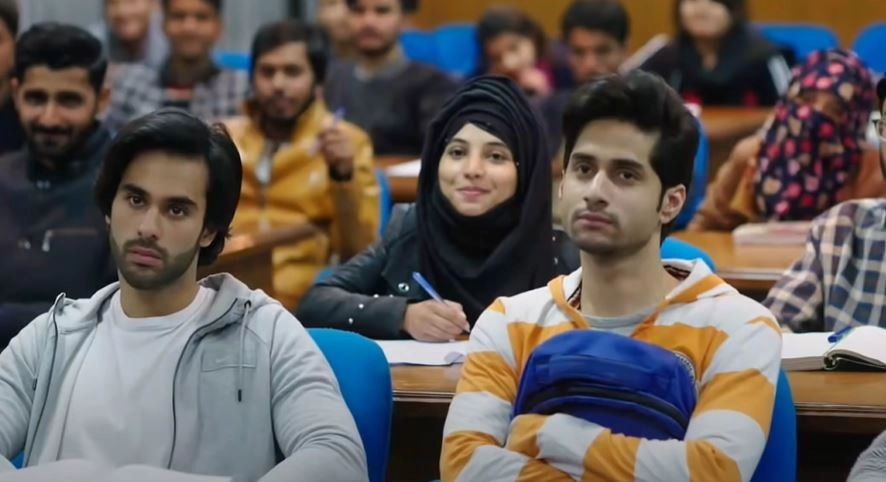
Mawra Hocane as Anaya Aziz
Mawra Hocane delivered one of her best performances as Anaya, and this Sabaat Drama Review must credit her for making the character unforgettable. Anaya’s strength, courage, and resilience came to life through Mawra’s nuanced acting. Her chemistry with Ameer Gilani was refreshing and natural, making their love story believable. Mawra also portrayed the emotional scenes, especially those involving workplace harassment and marital struggles, with remarkable depth. She became the voice of countless women facing similar challenges in society.
Sarah Khan as Miraal Hussain
Miraal is perhaps the most complex character in Sabaat, and Sarah Khan’s performance elevated the drama to another level. In this Sabaat Drama Review, it is impossible not to highlight how Sarah embodied Miraal’s arrogance, pride, and manipulative nature with finesse. Yet, she also allowed glimpses of Miraal’s vulnerability to shine through, making her more than just a one-dimensional antagonist. Sarah’s glamorous yet intimidating presence on screen perfectly matched Miraal’s personality, leaving a lasting impression on viewers.
Usman Mukhtar as Dr. Haris
Usman Mukhtar’s portrayal of Dr. Haris provided a much-needed balance in the drama. Calm, composed, and wise, Haris became a symbol of patience in contrast to Miraal’s toxic behavior. In this Sabaat Drama Review, Haris’s role is celebrated as one of reason and compassion. Usman’s understated performance made Haris believable and relatable, while his chemistry with Sarah Khan added depth to Miraal’s story arc.
Seemi Raheel & Mohammed Ahmed as Anaya’s Parents
The roles of Anaya’s parents deserve recognition in this Sabaat Drama Review because they represented progressive parenting, something rarely highlighted in Pakistani dramas. Seemi Raheel as the supportive mother and Mohammed Ahmed as the wise father created a positive family dynamic that resonated with audiences. Their encouragement of Anaya’s independence and their unwavering support during her struggles made them standout characters.
Syed Muhammad Ahmad as Miraal’s Father
Miraal’s father, played by Syed Muhammad Ahmad, was a strict and authoritative figure who unknowingly fueled his daughter’s arrogance. In this Sabaat Drama Review, his role is important because it highlights how family dynamics and upbringing can shape personality traits. His preference for wealth and authority over humility indirectly reinforced Miraal’s toxic behavior.
Abbas Ashraf Awan as Atif
Though a side character, Atif deserves a mention in this Sabaat Drama Review as Hassan’s loyal friend. He symbolized the importance of true friendship and support in times of crisis. His presence reminded viewers that strong friendships can serve as anchors when life becomes overwhelming.
Final Thoughts on the Cast
The cast of Sabaat was its backbone. Every actor, whether in a leading or supporting role, contributed to making the drama realistic and relatable. Their performances brought the characters to life, turning Sabaat into an emotional and thought-provoking journey. This Sabaat Drama Review acknowledges that without such a talented cast, the drama would not have achieved the same level of success or impact.
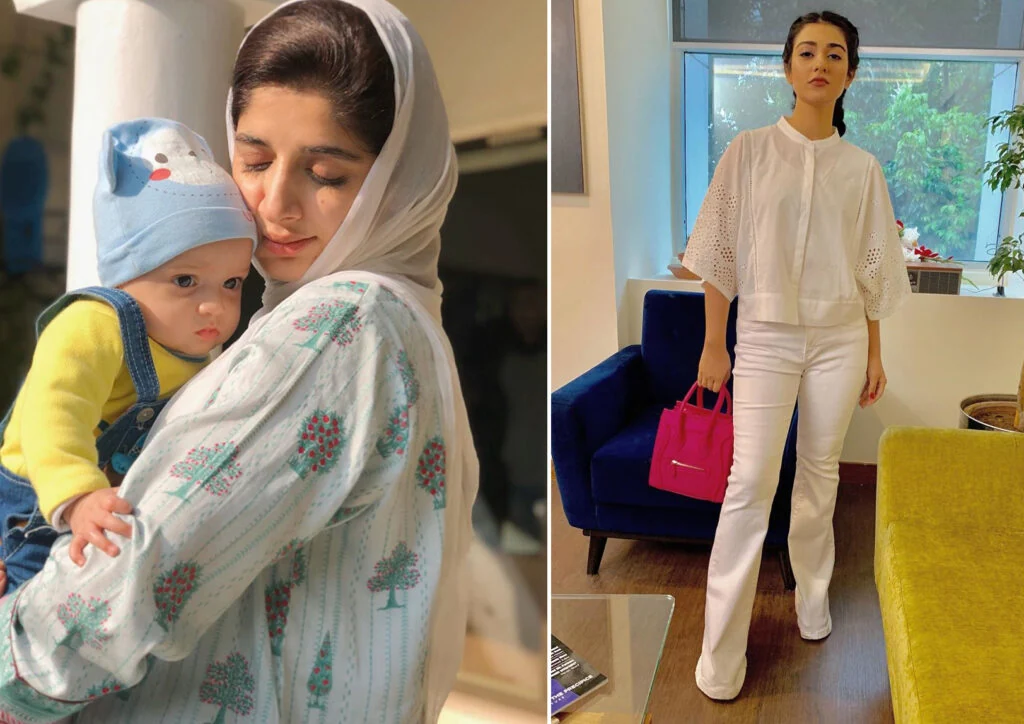
Themes and Messages
Every meaningful drama carries lessons that go beyond entertainment, and in this Sabaat Drama Review, it becomes clear that the strength of Sabaat lies in its thought-provoking themes and powerful messages. The story was more than just about love or betrayal—it was about ambition, arrogance, family dynamics, and the consequences of human flaws. These themes made the drama relatable to audiences across different age groups, as each viewer could connect to at least one aspect of the characters’ journeys.
Ambition and Class Struggles
One of the primary themes highlighted in this Sabaat Drama Review is ambition. Hassan’s character represents the struggles of individuals from middle-class families who strive to build their own identity in a society dominated by wealth and privilege. His determination to rise above his circumstances is admirable, yet his insecurities make him vulnerable to manipulation. Through Hassan, the drama sends a message about the importance of self-belief and integrity in achieving success.
The contrast between Hassan’s humble beginnings and Miraal’s privileged lifestyle underscores the theme of class struggle. This Sabaat Drama Review notes how the drama explores the challenges faced by people who lack financial resources but possess talent and hard work. It also shows how arrogance and pride, often associated with wealth, can be destructive.
Women’s Empowerment and Independence
Another strong theme in this Sabaat Drama Review is women’s empowerment. Anaya’s character stands as a symbol of strength and independence. She is not afraid to voice her opinions, pursue her career, and fight against workplace harassment. Her courage inspires viewers, particularly women who face similar struggles in real life. The drama conveys a message that women deserve equal respect and opportunities, and that silence in the face of injustice only strengthens oppression.
On the other hand, Miraal represents a different side of women’s independence. She is financially empowered and unapologetically strong, yet her arrogance and toxic behavior serve as a warning about the misuse of power. This duality makes the theme of women’s empowerment more complex in the Sabaat Drama Review, showing both the positive and negative sides of independence when not balanced with humility.
Pride, Arrogance, and Downfall
Miraal’s story arc is built around the theme of pride and arrogance. This Sabaat Drama Review highlights how her belief that wealth and control can guarantee happiness leads her toward loneliness and heartbreak. Her refusal to accept love, compromise, or humility ultimately becomes her downfall. The drama’s message is clear: unchecked pride not only destroys relationships but also isolates individuals from happiness and peace.
Love, Trust, and Betrayal
Romantic relationships in Sabaat are not painted in simple black-and-white terms. Instead, they are shown as complicated, fragile, and deeply dependent on trust. Hassan and Anaya’s love story demonstrates how love can withstand challenges if built on trust and respect. However, their conflicts also show how betrayal, whether intentional or due to external manipulation, can break even the strongest bonds. This Sabaat Drama Review stresses the importance of honesty, patience, and compromise in sustaining relationships.
Family Dynamics and Parenting
The drama also sends powerful messages about family dynamics. In this Sabaat Drama Review, Anaya’s family stands as a positive example of love, support, and progressive parenting. Her parents encourage her to pursue education and independence, proving that trust and open communication between parents and children create stronger individuals.
In contrast, Miraal’s family, especially her father, highlights the negative side of strict, authoritative parenting. By instilling values of superiority and control, her upbringing contributes to her toxic behavior. The drama delivers a strong message that parenting plays a crucial role in shaping a child’s personality and worldview.
Mental Health and Emotional Balance
Through Dr. Haris’s character, Sabaat also touches upon the theme of mental health. This Sabaat Drama Review appreciates how the drama subtly raised awareness about the importance of psychological well-being. Haris’s role as a psychiatrist and his efforts to help Miraal underline the message that seeking help for mental health issues should not carry stigma. It emphasizes patience, understanding, and professional support as key to emotional balance.
Consequences of Choices
At its core, Sabaat is about the consequences of choices. Every major decision taken by the characters—whether it is Hassan’s compromises, Anaya’s resilience, or Miraal’s manipulations—shapes their destiny. This Sabaat Drama Review points out that the drama beautifully illustrates how every action has repercussions, teaching viewers the importance of making decisions guided by integrity rather than arrogance or fear.
Final Thoughts on Themes
In conclusion, the themes and messages of Sabaat elevate it beyond a typical family drama. This Sabaat Drama Review demonstrates that the drama is a reflection of real-life struggles—ambition, pride, independence, family dynamics, and the consequences of human behavior. By combining these themes, the drama not only entertained but also educated, leaving audiences with lessons that linger long after the final episode.

Greed and Its Consequences
In any compelling story, themes of loyalty, betrayal, justice, and greed play a central role in shaping the narrative. In this Sabaat Drama Review, these elements stand out as the backbone of the drama, making it more than just an emotional tale of love and ambition. The characters’ journeys are defined by their ability—or inability—to remain loyal, resist greed, or stand for justice. At the same time, betrayal and arrogance drive much of the conflict, creating an engaging plot with moral lessons.
Loyalty
Loyalty is one of the most admirable qualities in Sabaat. In this Sabaat Drama Review, Hassan and Anaya’s love story is initially built on trust and loyalty. Despite the hurdles placed in their path by Miraal’s manipulation, the two characters demonstrate unwavering faith in each other during the early episodes. Anaya, in particular, proves her loyalty by supporting Hassan not only in love but also in his ambitions.
Another example of loyalty is Hassan’s friendship with Atif. Atif remains a supportive figure, symbolizing how true friends stand by you in moments of hardship. This depiction adds warmth to the story, reminding viewers of the importance of reliable companions in a world full of challenges.
Betrayal
On the opposite side of loyalty lies betrayal, a theme this Sabaat Drama Review cannot ignore. Miraal, with her manipulative tactics, betrays Hassan’s trust by using her influence to interfere in his personal and professional life. Her betrayal is not fueled by love but by her inability to accept someone else’s independence and success.
Hassan also falters when his insecurities get the better of him, causing him to emotionally betray Anaya’s trust. This conflict adds realism to the drama, as betrayal often arises not just from malice but from human weakness and fear. The storyline reminds viewers that betrayal, whether intentional or unintentional, can destroy even the strongest of relationships.
Justice
Justice plays a subtle yet powerful role in the narrative. In this Sabaat Drama Review, Anaya’s confrontation with workplace harassment is one of the clearest examples of justice. Instead of succumbing to silence, she chooses to speak up and fight for her dignity. This sends a strong message about the importance of standing against exploitation, inspiring women to seek justice in their own lives.
Justice is also reflected in the eventual downfall of Miraal. Her arrogance and schemes bring her temporary satisfaction but eventually leave her isolated and unhappy. This poetic justice reinforces the moral that pride and manipulation always lead to self-destruction.
Greed
Greed is perhaps the most destructive theme in this drama. Miraal’s greed for control, dominance, and superiority drives most of the conflict. This Sabaat Drama Review highlights that her desire to control Hassan and dictate his life comes not from love but from greed for authority. Her inability to accept equality in relationships ultimately results in her loneliness.
Greed is also subtly reflected in Hassan’s initial eagerness to climb the social ladder, sometimes at the expense of his own happiness. His internal struggle shows that while ambition is necessary, when it turns into greed, it causes more harm than good.
Consequences
Every action in Sabaat comes with consequences, and this is where the drama truly shines. This Sabaat Drama Review emphasizes that the consequences of betrayal, greed, and arrogance are central to the story’s resolution. Miraal, despite her wealth, loses love and companionship. Hassan, though flawed, learns from his mistakes and earns redemption through humility. Anaya, by staying true to her values, emerges stronger and more respected.
The consequences are not exaggerated or far-fetched; they are grounded in reality. For instance, Miraal’s loneliness is not because of supernatural punishment but a direct result of her behavior. Similarly, Hassan’s redemption is not handed to him easily—he has to work for it, reflecting the idea that change and forgiveness require effort.
Moral Lessons
A good Sabaat Drama Review must underline the lessons derived from these themes. Loyalty and trust build strong foundations in both personal and professional life. Betrayal may offer temporary satisfaction but leaves lasting damage. Justice is worth pursuing, even when it feels difficult, because silence only empowers injustice. Greed, though tempting, destroys relationships, while humility leads to growth and peace.
The drama masterfully ties these lessons into its conclusion, ensuring that viewers walk away not just entertained but also enlightened.
Final Thoughts on These Themes
In conclusion, the themes of loyalty, betrayal, justice, greed, and consequences form the moral core of the drama. This Sabaat Drama Review acknowledges that these elements are what transformed Sabaat from a simple love story into a socially relevant masterpiece. The drama reminds us that while human flaws are inevitable, how we deal with them determines whether we find happiness or destruction.
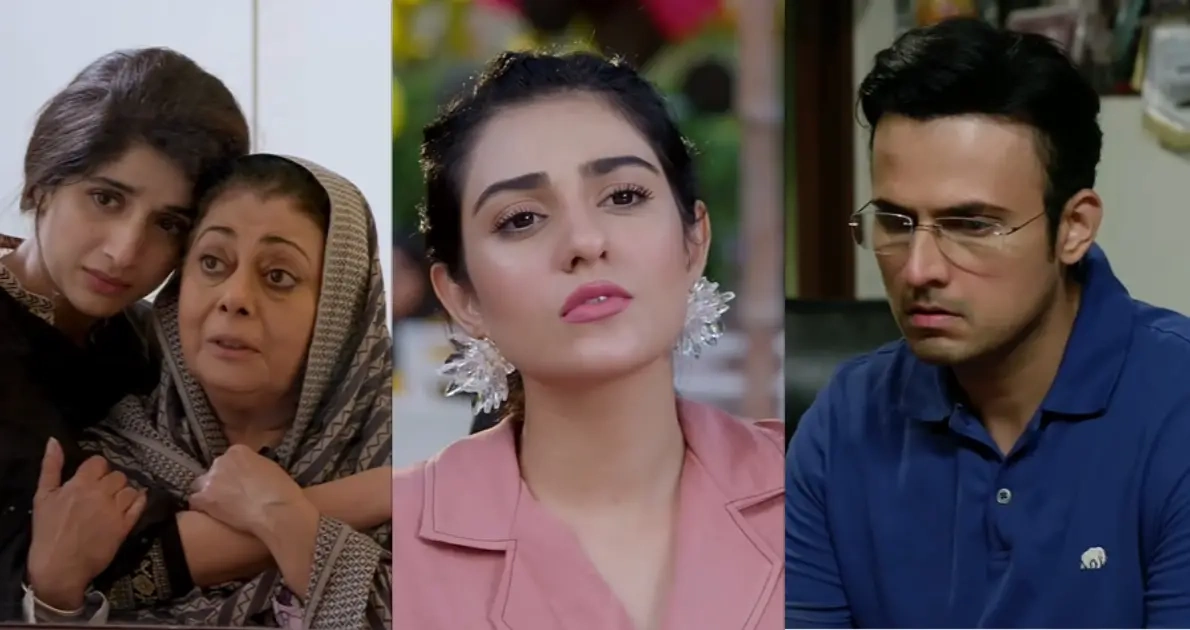
Family Dynamics
Family plays an essential role in shaping a person’s character, values, and decisions. In this Sabaat Drama Review, the theme of family dynamics is particularly important because it not only defines the main characters’ personalities but also drives much of the story’s conflict. Sabaat uses the contrast between two families—Anaya’s progressive household and Miraal’s authoritative environment—to highlight how upbringing and family values directly impact an individual’s choices in life.
Anaya’s Family: A Symbol of Support and Love
One of the most refreshing aspects of this Sabaat Drama Review is the portrayal of Anaya’s family. Unlike the typical oppressive or overly controlling parents often seen in Pakistani dramas, Anaya’s parents are supportive, understanding, and progressive. Her father, played by Mohammed Ahmed, is wise and empathetic, while her mother, portrayed by Seemi Raheel, is warm and encouraging. Together, they create an environment of trust and love where Anaya feels free to pursue her dreams.
This supportive dynamic is especially evident in the way they handle Anaya’s struggles. Whether it is her decision to pursue a career, her confrontation with workplace harassment, or her marriage challenges, her parents stand by her side. In this Sabaat Drama Review, it becomes clear that their unwavering support gives Anaya the strength to fight for her rights and maintain her dignity. Their relationship demonstrates the importance of progressive parenting and how open communication within families can create resilient individuals.
Miraal’s Family: Power, Control, and Arrogance
In contrast, Miraal’s family dynamics are built on authority, power, and superiority. Her father, a wealthy businessman, instills in her the belief that money and influence can solve every problem. This Sabaat Drama Review highlights how Miraal’s arrogance and superiority complex stem directly from her upbringing. Instead of teaching humility and empathy, her family environment nurtures entitlement and control.
Miraal’s interactions with her father show how his authoritative nature shapes her outlook on life. He rarely challenges her arrogance, indirectly reinforcing her toxic behavior. As a result, Miraal struggles to build healthy relationships outside of her family. This contrast between her upbringing and Anaya’s highlights the importance of balanced parenting in shaping an individual’s character.
Hassan’s Family: Expectations and Middle-Class Struggles
Hassan’s family dynamic offers another layer of realism in this Sabaat Drama Review. As a member of a middle-class family, Hassan feels the pressure of expectations while also grappling with financial struggles. His determination to rise above his circumstances is admirable, but it also creates tension with his family. His background highlights the challenges faced by many young people in Pakistan who try to balance their ambitions with family responsibilities.
The subtle depiction of Hassan’s relationship with his family reflects how middle-class households often value hard work, discipline, and sacrifice. Yet, the lack of resources and opportunities sometimes causes friction, fueling insecurities that Hassan carries into his professional and personal life.
The Role of Parenting in Shaping Destiny
This Sabaat Drama Review underscores how parenting styles directly influence the paths taken by the characters. Anaya’s parents teach her values of honesty, resilience, and independence, which help her navigate challenges with strength. Miraal’s upbringing, dominated by wealth and authority, fosters arrogance and insecurity, ultimately leading to her downfall. Hassan’s middle-class background pushes him toward ambition but also fills him with self-doubt.
Through these contrasts, the drama delivers a strong message: family is the foundation of an individual’s personality. The values, guidance, and love—or lack thereof—within families shape not just personal choices but also relationships, ambitions, and moral compass.
Family as a Source of Conflict and Resolution
In this Sabaat Drama Review, it is clear that family dynamics are not only a backdrop but also a driving force behind the plot. Miraal’s toxic family environment causes her to interfere in Hassan and Anaya’s relationship, creating much of the drama’s conflict. At the same time, Anaya’s supportive family serves as a source of resolution and strength, helping her overcome the hurdles placed in her path.
The contrast between these two family structures allows viewers to reflect on their own lives. Many audiences related to Anaya’s loving parents, while others saw shades of Miraal’s authoritative upbringing in their own experiences. This relatability is one of the reasons why Sabaat resonated so strongly with its viewers.
Final Thoughts on Family Dynamics
In conclusion, the family dynamics in Sabaat are not just subplots—they are the backbone of the story. This Sabaat Drama Review reveals how the drama uses families to explore themes of love, support, power, and control. By contrasting Anaya’s supportive home with Miraal’s toxic environment and Hassan’s middle-class struggles, the drama highlights how family plays a defining role in shaping character and destiny. Sabaat reminds us that while friends and society influence us, it is family values that leave the deepest impact.
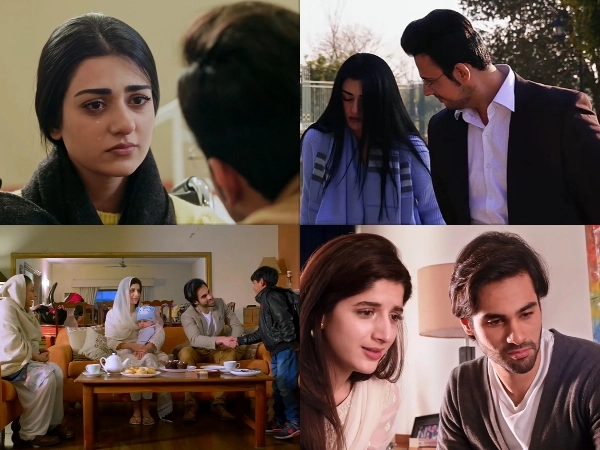
Direction and Cinematography
No drama can achieve success without strong direction and compelling visuals. In this Sabaat Drama Review, one of the standout elements is the way the director, Shehzad Kashmiri, uses storytelling, visual aesthetics, and atmosphere to elevate the drama. Known for his ability to create emotionally charged narratives, Kashmiri gave Sabaat a cinematic feel that made it stand apart from routine television serials. Every scene feels carefully crafted, with attention given not only to dialogue and performances but also to how visuals convey unspoken emotions.
Vision of the Director
The direction in Sabaat reflects a clear vision: to create a story that feels real yet visually appealing. In this Sabaat Drama Review, it is evident that Shehzad Kashmiri focuses on subtle storytelling rather than relying on over-dramatization. For example, Miraal’s arrogance is not only shown through her harsh words but also through her body language, settings, and the way scenes are framed around her character. Similarly, Hassan’s struggles are portrayed not just in dialogues but in the environment surrounding him—his modest home, his expressions, and his interactions with others.
This attention to detail helps viewers connect with the story on a deeper level. Kashmiri ensures that emotions are shown, not just spoken, making the drama relatable and memorable.
Cinematography: A Visual Treat
The cinematography in Sabaat is another highlight worth discussing in this Sabaat Drama Review. The use of natural lighting, wide-angle shots, and symbolic framing gives the drama a polished look that feels closer to a film than a typical TV serial. Outdoor shots, especially those depicting Islamabad’s serene landscapes, provide a refreshing break from the confined indoor settings often seen in Pakistani dramas.
For instance, Anaya’s moments of strength and independence are often filmed against open spaces and natural light, symbolizing freedom and resilience. In contrast, Miraal’s scenes are frequently set in closed, luxurious spaces with sharp lighting, emphasizing her isolation and emotional confinement despite her wealth. These subtle choices in cinematography strengthen the themes of the story without needing additional explanation.
Symbolism in Visuals
This Sabaat Drama Review also notes the use of visual symbolism throughout the drama. The way characters are placed in scenes often reflects their relationships and emotional states. For example, in confrontational scenes between Miraal and Hassan, the camera angles are tilted to emphasize power imbalance—Miraal often appears dominating, while Hassan is framed as vulnerable.
Similarly, the repeated use of mirrors in Miraal’s scenes symbolizes her internal conflicts and self-obsession. These choices in cinematography are not coincidental but carefully designed to deepen the storytelling.
Pacing and Flow of Scenes
Direction and cinematography also play a role in maintaining the drama’s pacing. In this Sabaat Drama Review, it is important to highlight how the director balances slower, emotional sequences with faster-paced confrontations. This balance ensures that viewers remain engaged without feeling overwhelmed. Long, drawn-out shots allow emotions to sink in, while quicker cuts during arguments or confrontations build intensity.
One of the strengths of Kashmiri’s direction is his ability to let silence speak. Many impactful scenes in Sabaat rely on expressions, pauses, and subtle gestures rather than lengthy dialogues. This technique not only showcases the actors’ performances but also adds realism to the storytelling.
Technical Strengths
From a technical perspective, Sabaat excels in sound design, background music, and set aesthetics. In this Sabaat Drama Review, the sound design deserves mention because it enhances the emotional depth of each scene. The OST is used sparingly but effectively, ensuring that it supports rather than overpowers the narrative.
The set design also complements the characters’ personalities. Anaya’s home is warm and modest, reflecting her grounded upbringing. Miraal’s house is grand yet cold, symbolizing her emotional detachment. Hassan’s environment shifts as his journey progresses, reflecting his inner growth.
Contribution to Audience Engagement
Ultimately, the direction and cinematography of Sabaat are what made it visually and emotionally captivating. This Sabaat Drama Review emphasizes that Shehzad Kashmiri succeeded in delivering a drama that not only told a story but also created an experience for the viewers. Audiences were able to feel the tension, warmth, and heartbreak not just through words but through how scenes were crafted.
Final Thoughts on Direction and Cinematography
In conclusion, the direction and cinematography of Sabaat elevate it from being just another TV drama to a work of art. This Sabaat Drama Review shows that Shehzad Kashmiri’s attention to detail, combined with stunning visuals and symbolic storytelling, made the drama unforgettable. Every frame carried meaning, every silence spoke volumes, and every shot was a piece of the larger emotional puzzle. For anyone who values both story and style, Sabaat proved to be a perfect blend.
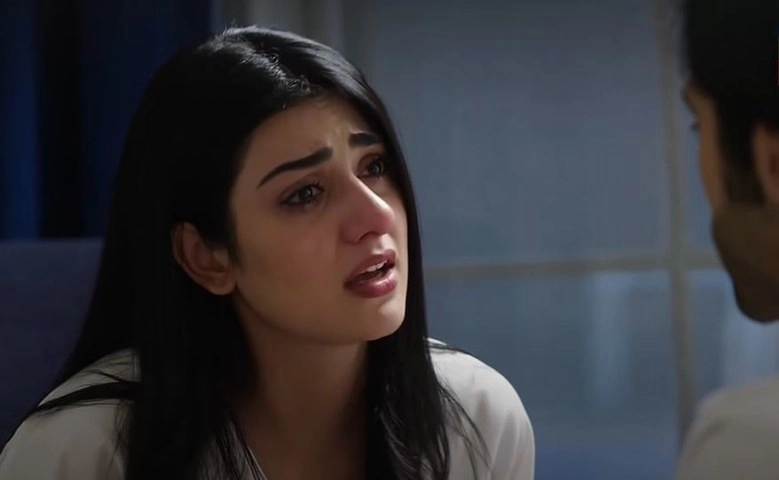
Pacing and Plot Twists
A drama’s success often depends on how well it balances storytelling pace with unexpected developments. In this Sabaat Drama Review, pacing and plot twists emerge as critical elements that keep viewers engaged from start to finish. Sabaat is not merely about love, betrayal, or ambition—it’s about how these themes unfold in a rhythm that feels both realistic and dramatic. While the narrative occasionally slows down, the timely twists and emotional climaxes ensure that the audience remains invested in the characters’ journeys.
Steady Build-Up
The pacing of Sabaat is carefully constructed. At the beginning, the drama takes its time to introduce characters, their backgrounds, and family dynamics. In this Sabaat Drama Review, this slow build-up is important because it allows viewers to connect with Anaya, Hassan, and Miraal before conflicts arise. Unlike many dramas that rush into melodrama, Sabaat focuses on setting up motivations and relationships in detail, which pays off later when conflicts intensify.
For example, the first few episodes focus on Hassan’s ambitions, Anaya’s progressive ideals, and Miraal’s arrogance. These early episodes may feel slower compared to high-voltage dramas, but they are essential for creating depth. The deliberate pacing makes the eventual twists more impactful because viewers understand the stakes involved.
Key Plot Twists
One of the standout features of Sabaat, as highlighted in this Sabaat Drama Review, is its ability to weave in unexpected yet believable plot twists. These twists prevent the story from becoming predictable and add layers of complexity.
-
Hassan and Anaya’s Marriage: The sudden decision to marry despite opposition serves as a powerful twist. It challenges traditional drama norms where love stories often drag endlessly before reaching marriage. Their bold step marks a turning point in the story, forcing Miraal to escalate her manipulative tactics.
-
Miraal’s Therapy Sessions: Introducing Miraal’s psychological struggles was another refreshing twist. Instead of portraying her as a one-dimensional antagonist, the drama explored her vulnerabilities. This unexpected layer not only humanized her but also sparked important conversations about mental health in Pakistani society.
-
Hassan’s Insecurities and Conflict with Anaya: Viewers expected Miraal to cause trouble, but Hassan’s own insecurities leading to mistrust created a surprising conflict. This twist added realism, showing that even heroes can falter when pride and fear take over.
-
Miraal’s Downfall: Perhaps the most satisfying twist in this Sabaat Drama Review is Miraal’s gradual downfall. Rather than delivering instant karma, the drama slowly unravels her life. Her loneliness, broken marriage, and isolation come as a natural consequence of her choices, offering a poetic yet believable resolution.
Pacing Challenges
While the pacing is mostly strong, this Sabaat Drama Review must also acknowledge moments where the story slows down too much. Certain episodes stretch out conflicts, particularly between Hassan and Anaya, which could have been resolved with tighter writing. These slow patches occasionally frustrated viewers, making the middle episodes feel less gripping. However, the strong performances and upcoming twists usually compensated for these dips.
Emotional Peaks and Climaxes
The pacing of Sabaat shines most in its emotional peaks. In this Sabaat Drama Review, moments like Anaya’s confrontation with workplace harassment or Miraal’s therapy sessions stand out because they arrive at just the right time. They break the monotony and re-energize the narrative. Emotional climaxes are not overdone with excessive background music or dragging dialogues; instead, they are executed with subtlety, allowing viewers to feel the weight of the moment.
Realism in Twists
One of the strengths of Sabaat’s plot twists is their realism. Unlike many dramas that rely on exaggerated tragedies or unrealistic scenarios, Sabaat keeps its twists grounded. This Sabaat Drama Review notes that even shocking moments—like betrayals or marital conflicts—are believable because they stem from human flaws rather than forced situations. This grounded approach makes the drama relatable, as viewers can see reflections of their own lives in the story.
Audience Reaction to Pacing and Twists
The audience response to the pacing and plot twists was mixed but mostly positive. Many appreciated the realism and emotional depth, while some felt the slower pace in the middle episodes tested their patience. However, by the end, the majority agreed that the gradual buildup and impactful twists made Sabaat a memorable watch. The discussions on social media about Miraal’s downfall, Anaya’s strength, and Hassan’s growth reflect how effectively the pacing and twists connected with viewers.
Final Thoughts on Pacing and Plot Twists
In conclusion, the pacing and plot twists of Sabaat are crucial to its success. This Sabaat Drama Review shows that while the drama occasionally slowed down, the carefully timed twists and emotional peaks kept the story engaging and relatable. By balancing realism with dramatic surprises, Sabaat managed to hold the audience’s attention and deliver a narrative that felt authentic and impactful.
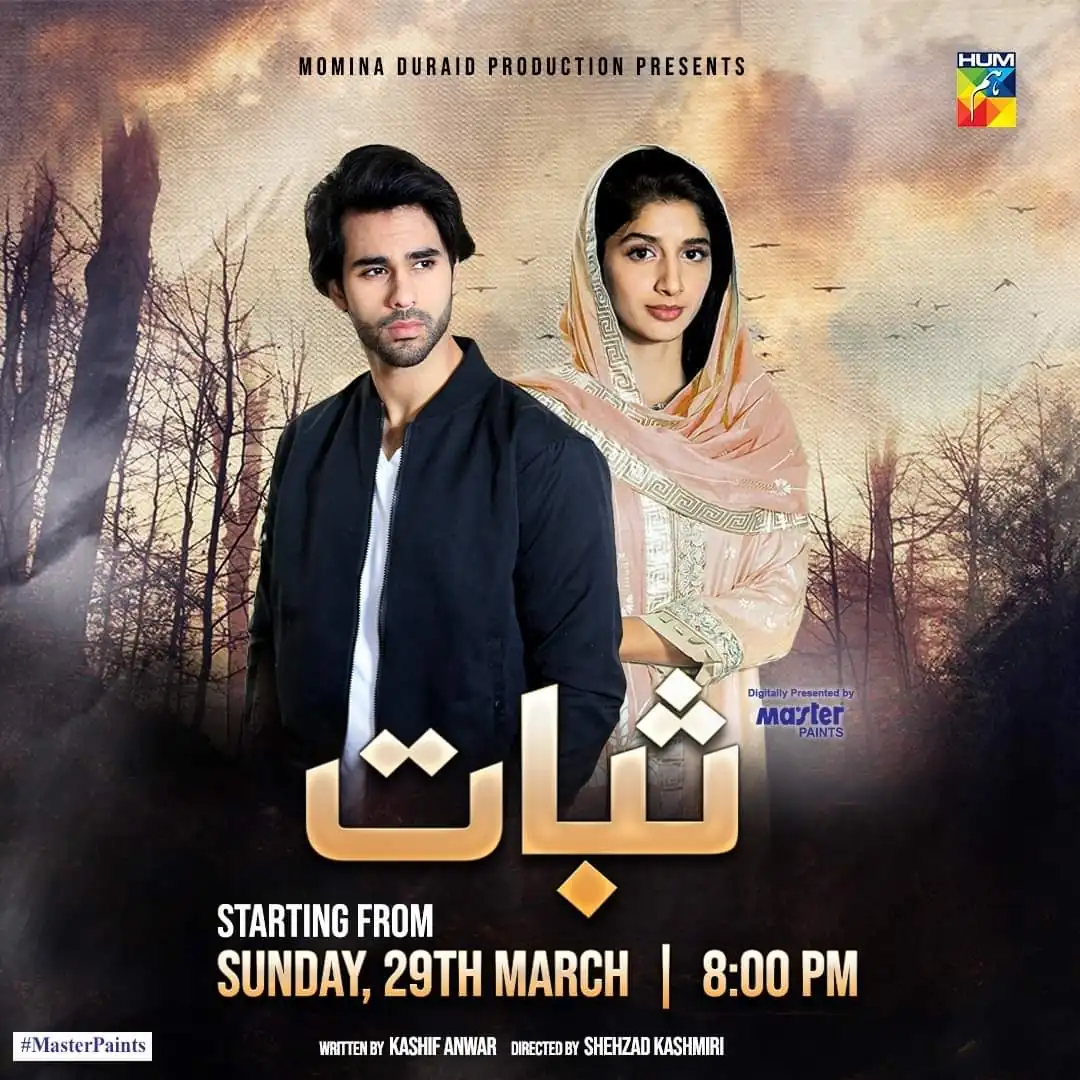
Strengths and Weaknesses
Every drama has its highs and lows, and part of an honest Sabaat Drama Review is acknowledging both. While Sabaat won over audiences with its progressive themes, strong direction, and layered characters, it also faced criticism for pacing issues and occasional narrative gaps. By weighing both the strengths and weaknesses, we can better understand why Sabaat remains memorable despite its flaws.
Strengths of Sabaat
1. Progressive Female Characters
One of the biggest strengths highlighted in this Sabaat Drama Review is the portrayal of strong female characters. Anaya, played by Sarah Khan, embodies resilience, independence, and courage. She fights workplace harassment, stands by her values, and refuses to compromise her self-respect, making her one of the most inspiring heroines in recent Pakistani dramas. Even Miraal, though negative, is a layered character who represents the dangers of unchecked arrogance and power. By exploring both positive and negative dimensions of female strength, the drama moves beyond clichés.
2. Realistic Themes
Sabaat is powerful because it tackles real issues faced by society. In this Sabaat Drama Review, topics like workplace harassment, gender inequality, toxic family dynamics, and mental health are central to the plot. Instead of glorifying suffering or endless melodrama, the drama portrays relatable struggles. This realism resonated deeply with audiences, especially younger viewers who connected with Anaya’s journey.
3. Direction and Cinematography
As discussed earlier, Shehzad Kashmiri’s direction is another major strength. The visual storytelling, symbolic use of settings, and attention to detail made Sabaat stand out. This Sabaat Drama Review notes how the direction ensured that emotions were shown through gestures, silence, and visuals rather than just heavy dialogues, giving the drama a cinematic appeal.
4. Strong Performances
The cast delivered powerful performances that elevated the script. Sarah Khan and Usman Mukhtar received immense praise, while Mawra Hocane and Ameer Gilani impressed with their portrayals of Anaya and Hassan. Even supporting actors like Mohammed Ahmed and Seemi Raheel stood out for their nuanced roles. In this Sabaat Drama Review, it is clear that the performances helped audiences emotionally connect with the characters’ journeys.
5. Relevant Social Messages
Sabaat’s ability to blend entertainment with meaningful lessons is another strength. It emphasizes the importance of equality, humility, justice, and the consequences of greed. By the end, the drama leaves viewers reflecting on their own lives and relationships, which is a mark of impactful storytelling.
Weaknesses of Sabaat
1. Pacing Issues
One recurring criticism in this Sabaat Drama Review is the drama’s uneven pacing. While the slow buildup worked in some areas, certain middle episodes dragged unnecessarily. The repetitive conflicts between Hassan and Anaya frustrated viewers, as many felt the issues could have been resolved faster.
2. Underdeveloped Subplots
Some subplots lacked depth. For instance, Hassan’s professional struggles could have been explored more thoroughly. Similarly, Miraal’s redemption arc felt abrupt to some viewers, leaving questions about whether her downfall truly reflected growth or simply punishment. This Sabaat Drama Review highlights how tightening these storylines could have added more depth.
3. Character Flaws in Execution
While the characters were layered, some inconsistencies weakened the narrative. Hassan’s insecurities, though realistic, sometimes seemed exaggerated and repetitive. Likewise, Miraal’s extreme arrogance, without much counterbalance from her family, made her character appear one-dimensional at times. These execution flaws slightly diluted otherwise strong character arcs.
4. Predictability Toward the End
Despite strong twists earlier, the final episodes became somewhat predictable. This Sabaat Drama Review observes that Miraal’s downfall, though satisfying, followed a familiar pattern seen in many dramas. A more nuanced resolution might have given the ending greater impact.
Balanced Perspective
Despite these weaknesses, it is important to note that Sabaat’s strengths outweighed its flaws. The drama sparked important conversations about gender roles, parenting, and social justice. Even when pacing slowed, the themes, performances, and direction kept audiences hooked. In this Sabaat Drama Review, what stands out most is the balance between relatable struggles and cinematic storytelling—a combination that few dramas manage to achieve.
Final Thoughts on Strengths and Weaknesses
In conclusion, the strengths of Sabaat—progressive characters, meaningful themes, strong direction, and powerful performances—make it a standout drama. While weaknesses like pacing issues, underdeveloped subplots, and predictability cannot be ignored, they do not overshadow the overall impact. This Sabaat Drama Review confirms that Sabaat is a drama that dared to be different, delivering not only entertainment but also lessons that continue to resonate with audiences.

Audience Reception
One of the most important aspects of any drama review is how the audience responds to it, and in this Sabaat Drama Review, the reception plays a vital role in understanding its impact. Sabaat was not just another Pakistani serial—it sparked debates, social media discussions, and countless reviews from critics and fans alike. While some viewers praised its realism and progressive themes, others criticized its slow pacing and certain character decisions. This diverse reaction is a testament to how deeply the drama resonated with audiences across different age groups and social backgrounds.
Initial Buzz and Anticipation
When Sabaat was first announced, it immediately generated buzz due to its star-studded cast and the reputation of its director, Shehzad Kashmiri. Fans of Sarah Khan, Mawra Hocane, Usman Mukhtar, and Ameer Gilani eagerly awaited their performances. Early promotions suggested that the drama would deal with themes of ambition, love, and family conflict, which further increased anticipation. As noted in this Sabaat Drama Review, the initial hype helped the drama secure strong viewership from the very beginning.
Social Media Engagement
One of the strongest indicators of audience reception was the drama’s popularity on social media. Platforms like Twitter, Facebook, and Instagram were flooded with discussions about each episode. Hashtags like #Sabaat and #Miraal often trended weekly. In this Sabaat Drama Review, it is important to highlight how fans dissected every scene, analyzed dialogues, and created memes, making the drama a cultural moment. Anaya’s courage and Miraal’s arrogance became talking points far beyond the television screen, proving how successfully the drama captured public attention.
Praise for Performances
The acting performances received widespread acclaim. Sarah Khan’s portrayal of Anaya was hailed as inspiring, with many young women relating to her resilience and progressive mindset. Usman Mukhtar, despite entering the drama later, became a fan favorite due to his nuanced portrayal of Dr. Haris. Meanwhile, Ameer Gilani gained recognition for playing Hassan, a flawed yet relatable character. Even Mawra Hocane, though criticized by some for Miraal’s exaggerated arrogance, was praised for her bold performance. This Sabaat Drama Review notes that strong acting was one of the key reasons the audience stayed engaged despite pacing issues.
Divided Opinions on Pacing
As mentioned earlier, pacing was a point of contention. While some viewers appreciated the slower buildup and emotional depth, others found the middle episodes dragged unnecessarily. Social media debates often highlighted this division, with one group praising the realism and another wishing for faster storytelling. This Sabaat Drama Review shows how pacing became one of the most frequently discussed aspects of audience reception.
Impact of Themes
Perhaps the most remarkable aspect of audience reception was the appreciation for the themes explored in Sabaat. Workplace harassment, gender equality, and mental health are not often tackled in mainstream Pakistani dramas, yet Sabaat addressed them head-on. Viewers, particularly younger audiences, lauded the drama for being socially relevant and sparking much-needed conversations. For many, Anaya’s fight against harassment and Miraal’s therapy sessions were groundbreaking, making the drama more than just entertainment.
Criticism and Backlash
No Sabaat Drama Review would be complete without acknowledging the criticism it faced. Some viewers felt Miraal’s downfall was too harsh and lacked nuance, while others argued that Hassan’s insecurities were dragged out longer than necessary. A section of the audience also wanted a stronger resolution for certain subplots, such as Hassan’s professional journey and Miraal’s redemption. These criticisms, while valid, reflect how deeply invested viewers were in the story and characters.
Ratings and Popularity
Despite criticisms, Sabaat maintained solid ratings throughout its run. The drama consistently attracted high TRPs (Television Rating Points), proving its commercial success. Online platforms like YouTube also showed millions of views per episode, reflecting strong digital engagement. This Sabaat Drama Review highlights that both traditional TV audiences and younger, internet-savvy viewers embraced the drama, making it successful across multiple platforms.
Long-Term Influence
The impact of Sabaat did not end with its finale. Even after the drama concluded, discussions about its themes continued. Many critics labeled it as one of the most progressive dramas of its time, while fans still revisit its memorable scenes. This long-lasting influence is a testament to how strongly the drama resonated with its audience. In this Sabaat Drama Review, it is clear that Sabaat’s legacy lies not only in its entertainment value but also in its ability to inspire meaningful conversations.
Final Thoughts on Audience Reception
In conclusion, the audience reception of Sabaat was a mix of admiration, criticism, and passionate engagement. This Sabaat Drama Review shows that while some viewers were frustrated with pacing and certain character choices, the majority appreciated its realism, progressive themes, and powerful performances. The drama successfully sparked debates, trended on social media, and left a lasting impression on audiences. Its ability to connect with viewers on both emotional and intellectual levels is what truly defines its success.
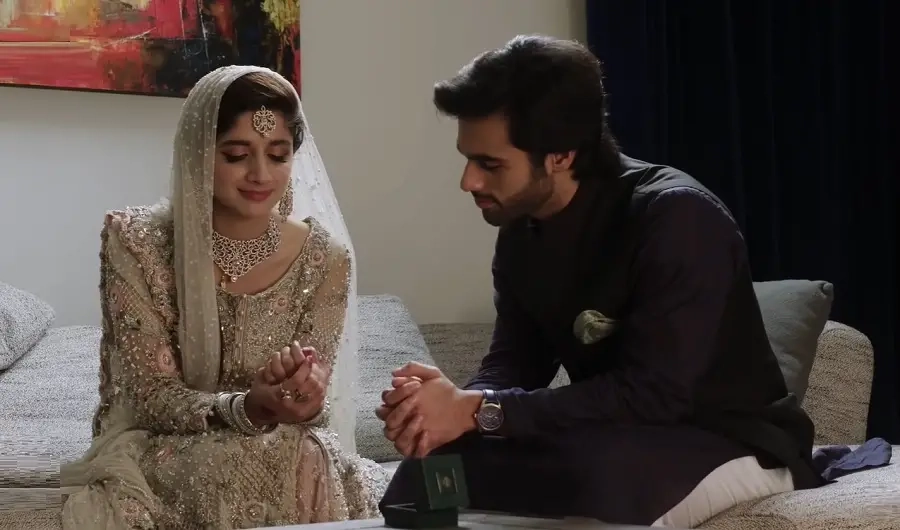
Final Verdict
Every review eventually comes down to one essential question: was the drama worth watching? In this Sabaat Drama Review, the final verdict is that Sabaat successfully combined entertainment with progressive themes, leaving a lasting impact despite some flaws. It wasn’t just another story of love, betrayal, and family conflict—it was a drama that dared to address real issues and depict layered characters in a relatable way. While it wasn’t perfect, Sabaat stands out as one of the most memorable Pakistani dramas in recent years.
A Bold Step in Pakistani Television
Sabaat took risks that many dramas shy away from. Instead of focusing solely on romance or exaggerated tragedy, it explored workplace harassment, toxic family dynamics, and mental health. This Sabaat Drama Review emphasizes that such themes gave the drama substance beyond mere entertainment. For audiences tired of recycled plots, Sabaat felt refreshing, bold, and socially relevant. The courage to portray strong, independent women and flawed, insecure men broke away from stereotypes that often dominate primetime television.
Strengths That Make Sabaat Shine
The drama’s strengths are undeniable. Its biggest achievement lies in its character development and strong performances. Sarah Khan’s portrayal of Anaya was both inspiring and relatable, offering young women a character who stood her ground with dignity. Usman Mukhtar’s role as Dr. Haris became a fan favorite, while Mawra Hocane’s Miraal gave viewers a layered antagonist they loved to hate. Direction by Shehzad Kashmiri further elevated the script, with visuals that captured both grandeur and intimacy.
This Sabaat Drama Review also highlights the realistic twists that made the drama engaging without resorting to outlandish scenarios. The story progressed naturally, reflecting human flaws and consequences, which is why viewers connected so strongly with it.
Weaknesses That Hold It Back
At the same time, no drama is without shortcomings. In this Sabaat Drama Review, pacing emerges as the primary weakness. Some episodes dragged, particularly during repeated conflicts between Hassan and Anaya, frustrating viewers who wanted tighter storytelling. Certain subplots, like Hassan’s professional journey, were underdeveloped, while Miraal’s downfall, though satisfying, felt a bit predictable toward the end. These weaknesses prevented Sabaat from reaching its full potential as a masterpiece.
Audience Reaction Matters
The final verdict cannot ignore audience reception, which was passionate and divided. On one hand, viewers praised the progressive storyline, strong acting, and impactful themes. On the other hand, some were disappointed by the dragged pacing and abrupt resolutions. Yet, even critics admitted that Sabaat left a strong impression. This Sabaat Drama Review confirms that whether loved or critiqued, the drama sparked discussions—an achievement in itself.
Lessons and Messages
One of the greatest strengths of Sabaat is its ability to leave audiences with important lessons. Greed, arrogance, and betrayal inevitably lead to downfall, as seen in Miraal’s story. Loyalty, resilience, and justice triumph in the long run, embodied by Anaya’s character. These timeless messages resonate beyond the screen, making the drama meaningful and thought-provoking. As this Sabaat Drama Review shows, Sabaat succeeded not just as entertainment but also as a mirror of society.
Why It Still Stands Out
Even with its flaws, Sabaat stands tall among its contemporaries. Few dramas manage to balance engaging storytelling with real social issues, yet Sabaat did exactly that. Its legacy lies in sparking conversations about topics rarely addressed on mainstream television. In this Sabaat Drama Review, it becomes clear that the drama’s relevance and relatability are what make it stand out years after its release.
Final Thoughts
In conclusion, the final verdict of this Sabaat Drama Review is that Sabaat is a drama worth watching. While it had pacing issues and a few underdeveloped arcs, its strengths far outweighed its weaknesses. Strong performances, progressive themes, realistic storytelling, and impactful direction ensured that it left a mark on audiences. It may not be flawless, but its courage to challenge stereotypes and address social issues makes it a valuable addition to Pakistani television. For anyone looking for a drama that combines entertainment with substance, Sabaat is undoubtedly a strong recommendation.
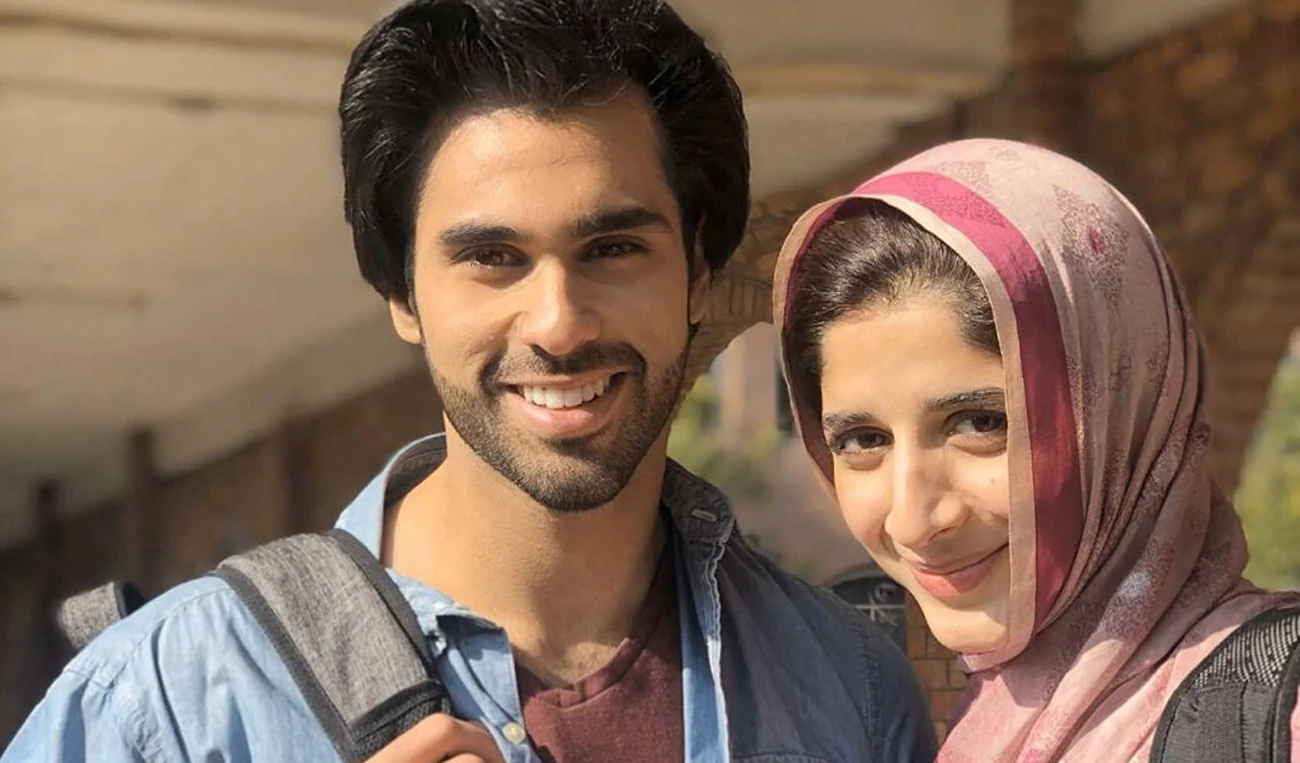
Conclusion: Wrapping Up the Sabaat Drama Review
Every drama journey eventually comes to a point where viewers reflect on what it offered them beyond the screen. In this Sabaat Drama Review, the conclusion is clear: Sabaat was more than just a television serial; it was a mirror of society, a conversation starter, and a reminder of timeless human values. Despite its flaws, it left a powerful mark on Pakistani drama culture and on the audiences who engaged with its themes of loyalty, betrayal, justice, greed, and family dynamics.
A Story Rooted in Reality
Unlike many melodramas that rely heavily on exaggerated conflicts, Sabaat chose realism. The struggles of Anaya against workplace harassment, the toxicity of Miraal’s arrogance, Hassan’s insecurity, and Haris’s calm wisdom felt relatable. This Sabaat Drama Review shows that viewers were able to see fragments of their own lives reflected in the story, which is why the drama resonated so strongly. Instead of presenting idealized characters, it showed flawed individuals trying to navigate complex realities—a choice that gave the drama authenticity.
Characters That Stayed With Us
One of the strongest takeaways from Sabaat is its memorable characters. Anaya became a symbol of strength and independence, encouraging women to fight for their dignity. Miraal, though deeply flawed, forced audiences to confront the consequences of unchecked pride and arrogance. Hassan reminded viewers of the destructive power of insecurity, while Haris became a beacon of rationality and compassion. In this Sabaat Drama Review, these characters are not just part of a story—they represent lessons, warnings, and inspirations that live on beyond the drama’s ending.
Lessons That Matter
If there’s one reason why Sabaat continues to be discussed, it is because of its lessons. The drama reinforced that arrogance and greed bring downfall, while humility and justice bring peace. Family dynamics, when poisoned by ego and inequality, can destroy relationships. At the same time, loyalty, resilience, and courage can rebuild what is broken. This Sabaat Drama Review emphasizes that these lessons are not confined to fiction—they are reminders relevant to real life, making the drama’s impact enduring.
Strengths That Made It Memorable
Looking back, it’s important to recognize what made Sabaat shine. Its strong performances, meaningful dialogues, and captivating direction gave it substance. The cinematography added depth, while the soundtrack complemented the emotional arcs. This Sabaat Drama Review also acknowledges the bravery of its creators for addressing themes often brushed aside on mainstream television. Even when pacing faltered, the drama’s vision and message held it together, ensuring that audiences stayed invested until the very end.
Weaknesses That Cannot Be Ignored
At the same time, this conclusion would be incomplete without admitting the weaknesses. The slow pacing in the middle episodes tested viewers’ patience, and some subplots felt underdeveloped. Miraal’s downfall, though satisfying, leaned toward predictability. Still, as discussed earlier in this Sabaat Drama Review, these flaws did not overshadow the drama’s core strengths. Instead, they serve as reminders of the challenges in balancing commercial appeal with meaningful storytelling.
Audience and Cultural Impact
Perhaps the most telling aspect of Sabaat’s success is how audiences engaged with it. Social media discussions, trending hashtags, and debates over character choices proved how deeply it connected with people. This Sabaat Drama Review highlights that the drama’s cultural impact went beyond entertainment—it became a talking point for issues like women’s rights, toxic family control, and mental health. Few dramas manage to leave such a strong cultural footprint, and Sabaat deserves recognition for that achievement.
Final Reflection
In wrapping up this Sabaat Drama Review, it is fair to say that Sabaat struck a delicate balance between storytelling and social commentary. It may not have been flawless, but it was bold, relevant, and thought-provoking. Its strengths outshone its weaknesses, its characters left lasting impressions, and its themes resonated with audiences across generations. The final takeaway is that Sabaat will be remembered not just for its story but for the conversations it inspired and the lessons it left behind.
For anyone looking for a Pakistani drama that entertains while offering depth, Sabaat remains a recommended watch. It reminds us that television, when done right, has the power to spark dialogue, challenge norms, and reflect the very society it portrays.
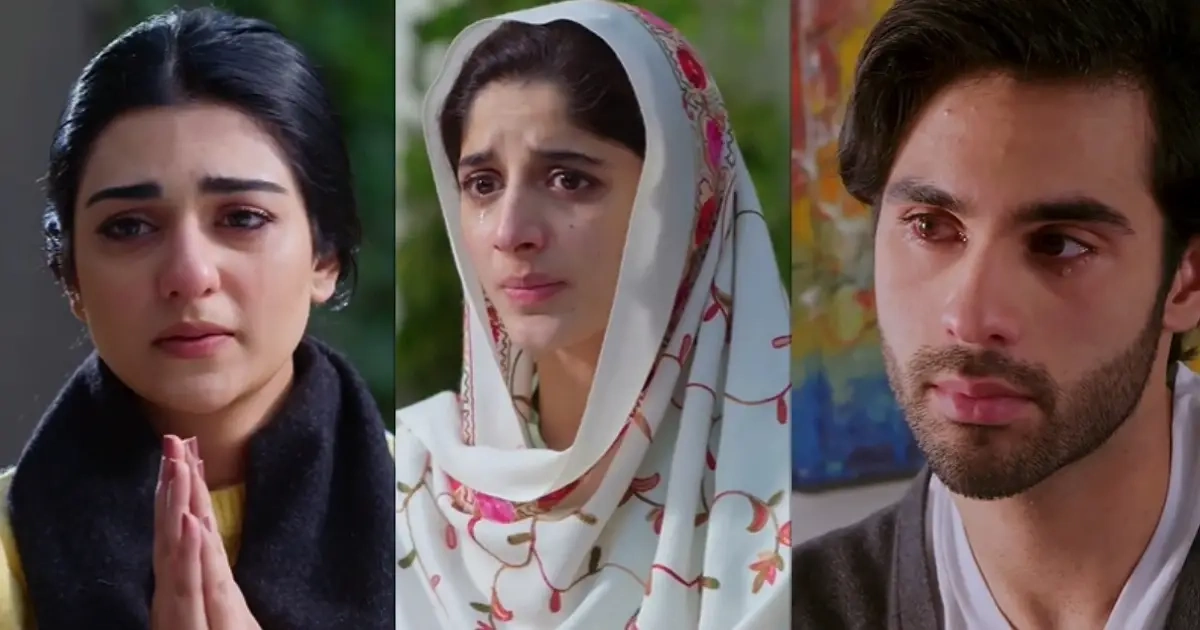
FAQs – Sabaat Drama Review
In every detailed Sabaat Drama Review, there are always questions viewers repeatedly ask after watching the drama or while deciding whether to start it. Below, I’ve compiled the most frequently asked questions with in-depth answers. These FAQs aim to clear doubts, highlight important details, and provide a comprehensive perspective on why Sabaat gained so much popularity.
1. What is Sabaat about?
Sabaat is a Pakistani drama that explores themes of love, betrayal, power, arrogance, and resilience. The story revolves around two central characters, Anaya (Sarah Khan) and Hassan (Ameer Gilani), whose relationship is tested by class differences, personal insecurities, and family interference. Miraal (Mawra Hocane) plays the antagonist, whose pride and control create chaos in everyone’s lives, while Dr. Haris (Usman Mukhtar) provides balance and wisdom. This Sabaat Drama Review shows that the drama isn’t just about romance—it’s a layered story about human flaws, justice, and redemption.
2. Who are the main cast members of Sabaat?
The main cast includes:
-
Sarah Khan as Anaya, a strong and independent young woman.
-
Ameer Gilani as Hassan, a man struggling with love and insecurities.
-
Mawra Hocane as Miraal, the arrogant and manipulative antagonist.
-
Usman Mukhtar as Dr. Haris, a calm and wise psychiatrist.
Supporting actors like Seemi Raheel, Mohammed Ahmed, and others add depth to the story. According to this Sabaat Drama Review, the performances were one of the drama’s strongest aspects.
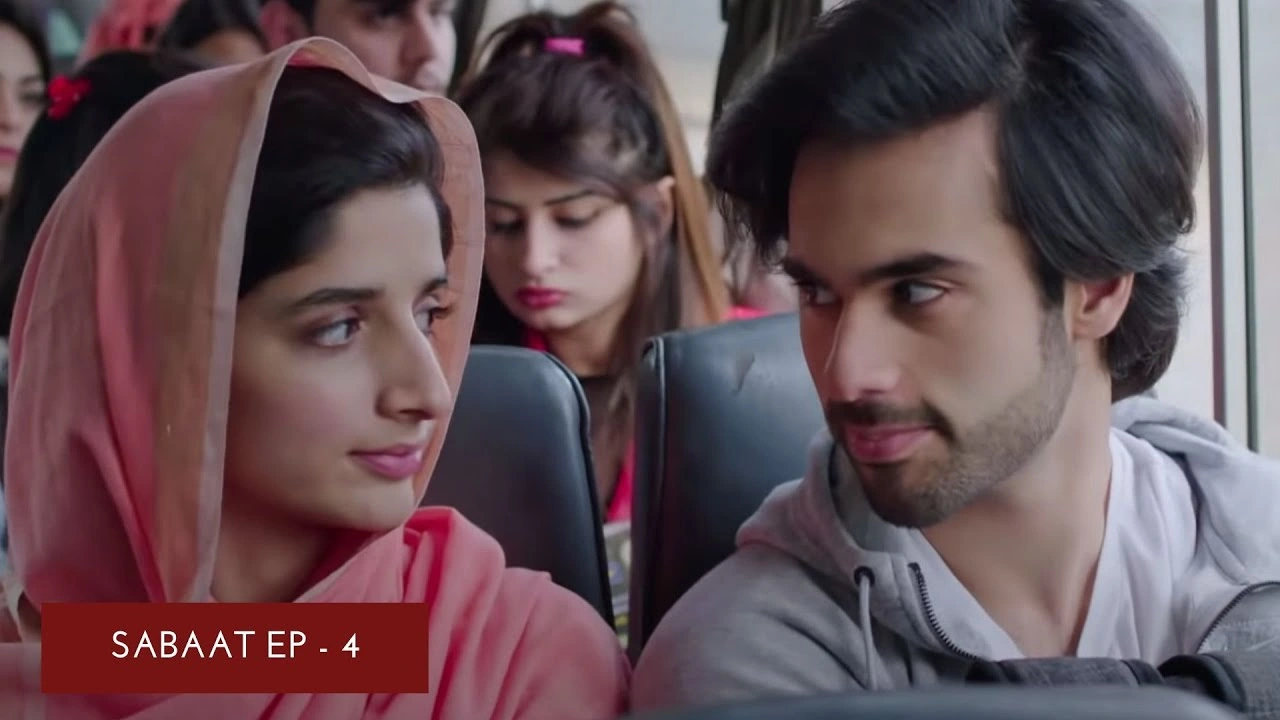
3. Why was Sabaat so popular?
This Sabaat Drama Review highlights several reasons for its popularity. Firstly, the drama addressed real social issues such as workplace harassment, mental health, and gender inequality—topics not often explored on primetime television. Secondly, the performances, particularly Sarah Khan’s Anaya, resonated deeply with audiences. Lastly, the direction by Shehzad Kashmiri and the drama’s relatable storytelling made it a fan favorite.
4. Did Sabaat receive any criticism?
Yes, like any major production, Sabaat wasn’t without flaws. Some viewers found the pacing too slow, especially during the middle episodes. Hassan’s insecurities were stretched over several episodes, frustrating some fans. Additionally, Miraal’s downfall, while satisfying, was seen as predictable by certain audiences. As this Sabaat Drama Review notes, the criticisms were valid, but they did not overshadow the overall impact of the drama.
5. What makes Sabaat different from other Pakistani dramas?
Unlike typical dramas that glorify suffering or focus only on romance, Sabaat combined strong storytelling with social commentary. Its female lead was progressive and resilient, not submissive or dependent. The antagonist, Miraal, was powerful but deeply flawed, reflecting real-world arrogance and control. This Sabaat Drama Review confirms that what made Sabaat unique was its balance of entertainment with meaningful, thought-provoking lessons.
6. How was the OST and production quality?
The OST of Sabaat was widely appreciated for its emotional depth and soulful melody. The cinematography was another highlight, with Shehzad Kashmiri using visuals to symbolize emotions and power dynamics. This Sabaat Drama Review emphasizes that the high production quality helped enhance the overall viewing experience.
7. What themes does Sabaat focus on?
Sabaat explores loyalty, betrayal, greed, justice, and family conflict. It shows how unchecked pride can destroy lives, while humility and perseverance ultimately lead to peace. Through Anaya, Miraal, and Hassan, it portrays real struggles of modern-day individuals. In this Sabaat Drama Review, the emphasis on relevant themes is what makes the drama unforgettable.
8. Was Miraal’s character realistic?
Yes, Miraal was designed to reflect the dangers of unchecked arrogance, entitlement, and toxic parenting. Some viewers felt her extreme arrogance was exaggerated, but many agreed it highlighted the consequences of a superiority complex. This Sabaat Drama Review explains that Miraal, though a negative character, carried important lessons about the destructive power of pride.
9. Is Sabaat worth watching today?
Absolutely. Even after its original run, Sabaat remains a highly recommended drama. The performances, direction, and themes make it timeless. This Sabaat Drama Review suggests that if you enjoy dramas that combine entertainment with meaningful lessons, Sabaat should definitely be on your list.

10. What is the final takeaway from Sabaat?
The final takeaway, as highlighted in this Sabaat Drama Review, is that arrogance, greed, and betrayal always lead to downfall, while resilience, loyalty, and justice eventually prevail. It also teaches that strong women deserve respect, and toxic family dynamics can destroy even the closest bonds. In short, Sabaat is a story of growth, redemption, and the timeless struggle between ego and humility.
Closing Thoughts on FAQs
These FAQs reflect the most common questions about the drama. Whether you are curious about the cast, themes, audience reception, or whether it’s worth watching, this Sabaat Drama Review has shown that Sabaat is more than just a TV serial—it’s a powerful commentary on life, relationships, and society.
For more drama reviews, visit The Stars Unfolded
Share via:



